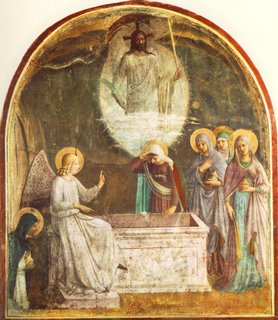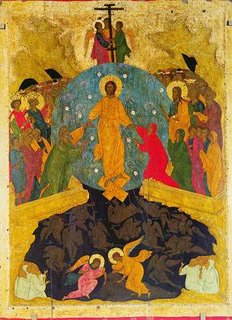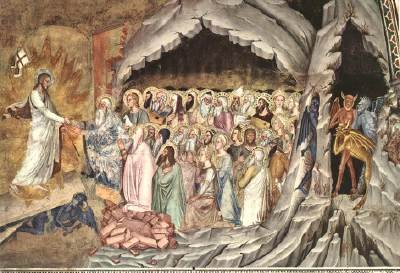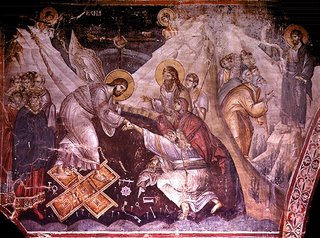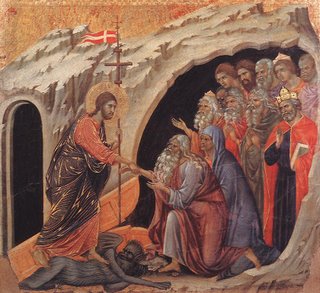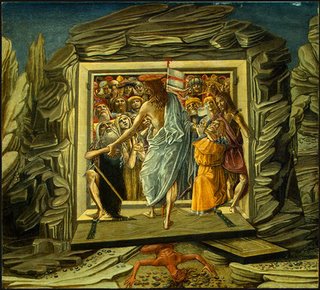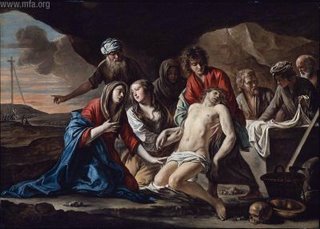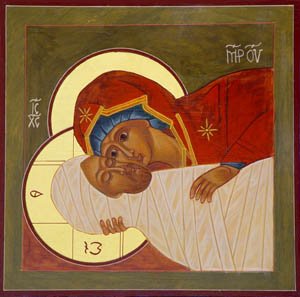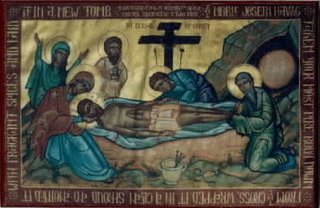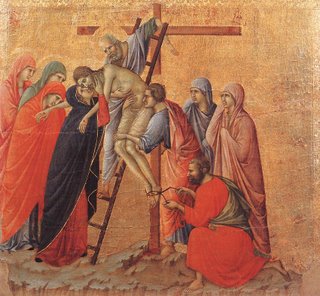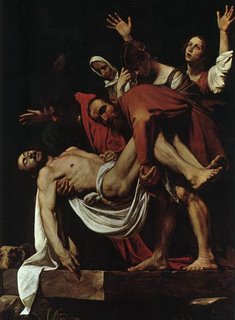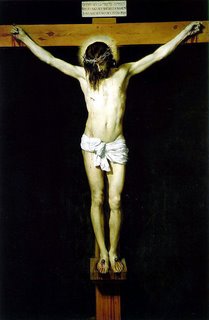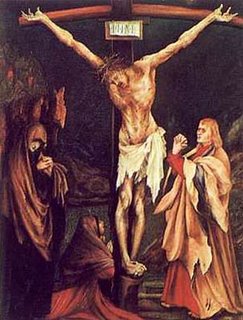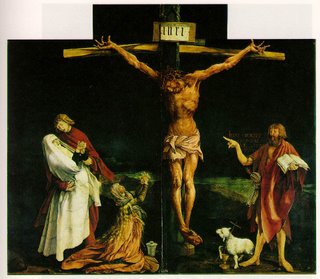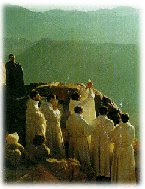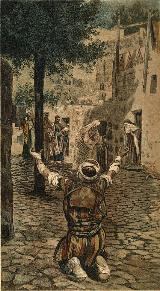Jesus, the Physician
Throughout the Gospels, Jesus
performs many miracles. He heals people from different social classes. He heals
Jews and non-Jews. He even heals sinners. His healings are not just physical.
Though he does heal people of their physical ailment (blindness, paralysis, flow
of blood, leprosy, a withered hand, and so on), he also and more importantly
heals people of their spiritual ailments (most notably forgiving their sins).
As a result, Jesus is known as a physician, a healer. Since he is God, he is
the Divine Physician.
The
Healing of the Paralytic
I encourage you to slowly read
through this scene. (Mk 2.1-12) Every time I do, I am struck by the choice of
words.
A man is paralyzed. Does he ask
to go to Christ? No, the text just says his friends bring him. A man is sick.
His friends take him to Christ. Simple. However, they can't get in. The house
is packed. The place is full. Do they give up? Do they say, "Well, we
tried"? No. They persist. Without ceasing, they—in a sort of
prayer—continue to get their friend to the One they believe in. Does the friend
say anything? Does the friend say he wants to go to Christ? No. The friend is
sick and paralyzed. For whatever reason, he is quiet, as if he cannot talk, as
if he is too sick to communicate his desires or voice his protests. Yet friends
are friends. They will not be turned away. They will continue to try for a
friend, for a loved one.
The friends raise the paralytic
up to the roof and lower him down through an opening. Now, the key, the word
that always resonates: "... their ..."
And when Jesus saw their faith, he said to the
paralytic, "My son, your sins are forgiven."
We remember that Jesus forgives his
sins. As well, he soon heals the man of the paralysis. That is what we have
come to expect from Jesus. But why? Why did Jesus do it? The text
reveals the answer: "And when Jesus saw their faith ..."
Their faith.
Jesus saw their faith
and was moved. Jesus saw what they had done. Jesus saw that a group of
believers in him loved a friend. Jesus saw that this group did not let crowds
or a full building get in the way of transporting their friend to him.
Jesus saw that this group risked to get their friend to him. They
raised him up to the roof, made an opening, and lowered their
paralyzed friend down into Jesus' midst.
Because of their faith,
he turned to the paralytic and forgave the man his sins. Jesus did not forgive
him because of anything he (the paralytic) had said or done. No. Jesus forgave
the man because of the man's friends. More precisely, Jesus acted because of
the faith of the man's friends.
We can help our friends and loved
ones by carrying them to Jesus, not letting obstacles of whatever sort get in
the way. Thus, we truly become "co-workers" with the Lord. (1 Cor
3.9) We bring to him and thus help him in the work of salvation, in the work of
saving souls.
This is Jesus, the Divine Physician, the one who heals those brought to him
out of faith, those we hope he turns to and once again utters those sought
after words: I say to you, rise ... and
go home. (Mk 2.11)




